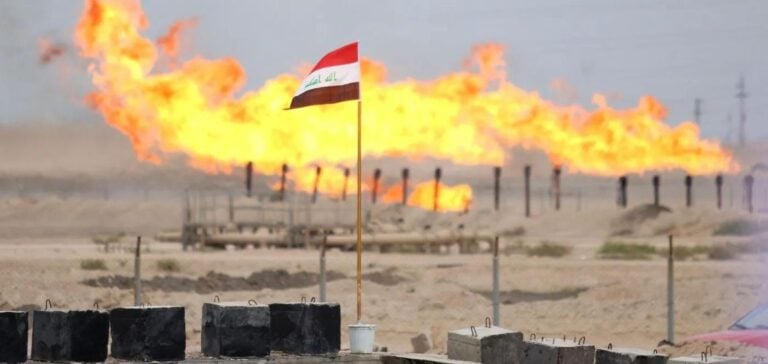Iraq is preparing for fiscal tightening in 2025 as oil prices continue to fall on the world market.
The country’s economy relies heavily on hydrocarbon revenues, which account for around 90% of government revenue.
This dependence makes Iraq vulnerable to fluctuations in crude oil prices.
Mudher Saleh, economic advisor to Prime Minister Mohammed Shia al-Sudani, stresses the need for stricter financial discipline to avoid a major crisis.
The year 2024 should be stable, but projections for 2025 are more uncertain.
Budget increase despite risks
Despite unfavorable oil conditions, Iraq’s budget for 2024 increases to 211 trillion dinars ($161 billion), compared with 199 trillion dinars ($153 billion) in 2023.
This budget increase follows a year of intensive spending, marked by an expansion of the civil service and the launch of large-scale infrastructure projects.
The 2024 budget is built on an assumption of $70 per barrel, $6 below the average price anticipated for 2023.
This budgetary choice could become critical if the downward trend in oil prices continues.
Putting Wages First and Adjusting Spending
Public spending in Iraq is dominated by salaries and pensions, which total 90 trillion dinars ($69 billion), or over 40% of the budget.
Saleh insists that these payments will remain a priority to preserve social stability.
Against a backdrop of falling revenues, the authorities may re-evaluate investment in infrastructure, focusing on projects deemed strategic, such as certain roadworks and bridges in Baghdad.
This readjustment of public spending reflects the need for rigorous management in the face of economic uncertainty.
Optimization of non-oil revenues
To offset potential losses due to volatile oil prices, Iraq is exploring ways of increasing its non-oil revenues.
Improving tax collection is seen as a key lever, although no new taxes are envisaged for the time being.
Tax evasion and customs problems represent an estimated annual loss of $10 billion, according to Saleh.
Reforms in these areas are therefore crucial to reducing the deficit and stabilizing public finances.
International context and local impact
Iraq’s budgetary challenges are set against a global backdrop of falling oil prices.
Since mid-2022, crude oil prices have plummeted from over $120 to less than $75 per barrel, putting economies dependent on hydrocarbon exports in a difficult position.
For Iraq, the stakes are high: navigating between prudent fiscal management and the need to maintain economic and social stability.
The government’s strategy is now based on adapting to market conditions and optimizing internal resources.
Players in the energy and economic sectors are keeping a close eye on these developments, as Iraq attempts to diversify its sources of revenue and reduce its dependence on oil in an uncertain environment.





















